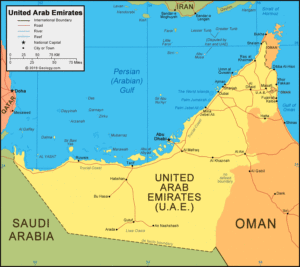 Prior to 2010,there was a great deal of anti-semitism against the Jews in UAE, despite the fact that Israel and the Gulf Arab sheikhdoms had secretly maintained economic ties over the last two decades.
Prior to 2010,there was a great deal of anti-semitism against the Jews in UAE, despite the fact that Israel and the Gulf Arab sheikhdoms had secretly maintained economic ties over the last two decades.
However, shared concerns over the threat of Iran’s regional aspirations resulted in the government of the United Arab Emirates granting Israel formal permission to establish a diplomatic office in Abu Dhabi, in 2015.
The development is the clearest sign yet of a growing political rapprochement with Gulf Arab states, who were traditionally its sworn enemies. Israeli trade with the Gulf states is currently estimated to be worth $1bn a year, and the potential for in trading in technology: especially cybersecurity, irrigation, medical supplies and the diamond industry, could bring this figure up to $25bn annually.
 No one really knows how many Jews live in UAE, as expats, who make up the majority of Jews living in the area, did not have the choice of listing Judaism on their visas. Judaism was not a recognised one of the recognised religions in the region. Estimates of the current Jewish population, in 2019, range from 150 families to 2,000-3,000 people.
No one really knows how many Jews live in UAE, as expats, who make up the majority of Jews living in the area, did not have the choice of listing Judaism on their visas. Judaism was not a recognised one of the recognised religions in the region. Estimates of the current Jewish population, in 2019, range from 150 families to 2,000-3,000 people.
There is now a recognised small Jewish community in the United Arab Emirates (UAE). The only synagogue, in Dubai has been open since 2008. This is the first emergence of the first new Jewish community emerging in the Arab world for centuries. Kosher catering companies called Kosher Arabia and Elli’s Kosher Kitchen are planned as well as and a kosher restaurant. Kosher food is also expected to soon be a feature on Gulf airlines.
Israel will take part in the 2020 World Expo in Dubai. The Israeli Foreign Ministry welcomed the opportunity to share their spirit of innovation and entrepreneurship, and to present Israeli innovations and trailblazing technology in various fields such as water, medicine and information technology.